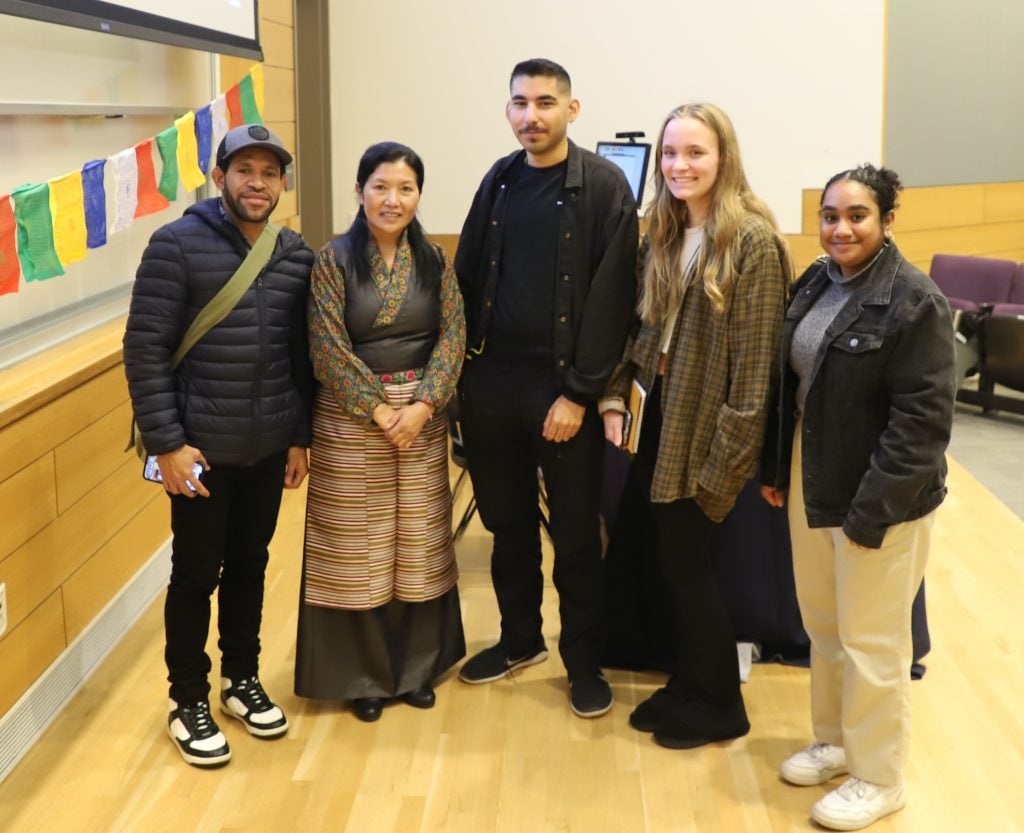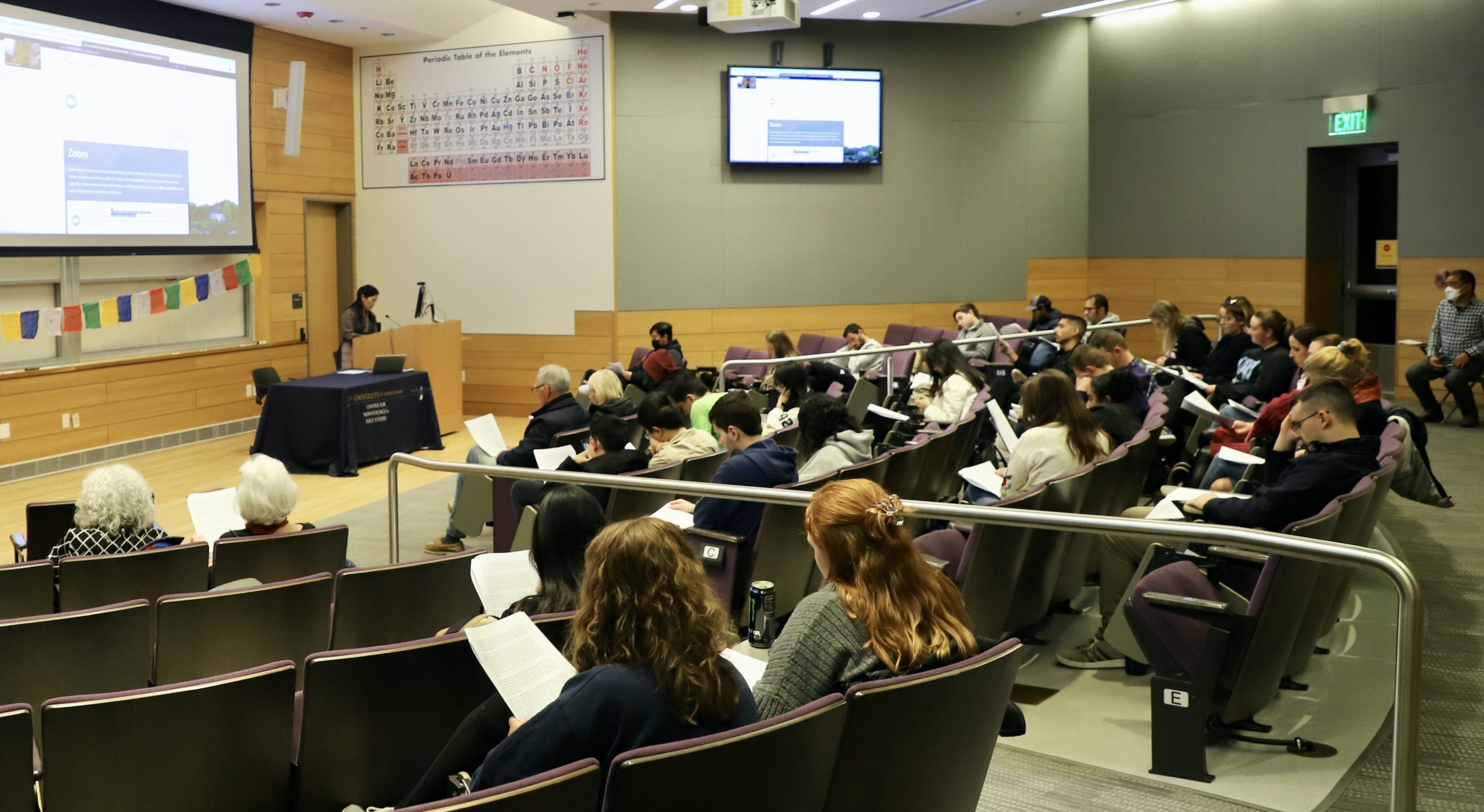By: Kay Bueno de Mesquita
I had the pleasure of meeting an amazing, courageous Tibetan woman on Wednesday evening, November 9, 2022, at a special program sponsored by the URI Center for Nonviolence and Peace Studies. Ngawang Sangdrol spoke of her struggle for freedom in her native Tibet, which has been occupied by China since 1959, when the Chinese invaded peaceful Tibet, killing thousands of Tibetans, while thousands fled for their lives to India, including the Dalai Lama. Since then, hundreds of thousands of Tibetans have died from starvation, execution, and torture in prisons. Also, thousands of monastic institutions were destroyed in order to wipe out the Tibetan culture.
The audience sat in stunned silence as Ngawang spoke of her horrendous experience in a Chinese prison for the simple crime of participating in a peaceful protest calling for freedom for Tibet. Growing up in Tibet, she learned firsthand that the Chinese forbade anyone from raising the Tibetan flag or speaking the Dalai Lama’s name, and they were severely punished if they tried.
She witnessed her first protest when she was ten years old and became involved in protests at age 11. Her family was politically active and made information booklets & Tibetan flags at home to take to protests. She was inspired by her family’s dedication to freedom and wanted to do more. Her father told her, “If you use your whole strength inside of you, it will make a difference.” Those words gave her courage. She knew that she could no longer sit quietly when so many Tibetans were being brutally beaten and killed in the streets.
When she was 12, she peacefully protested with a group of nuns at a festival, shouting, “Long live His Holiness the Dalai Lama” and “Independence for Tibet,” Within minutes, she and others were arrested by Chinese police, interrogated and beaten every day for a month with iron rods, water pipes, and bamboo sticks. Even worse, they tortured her by putting electric rods into her mouth. Several times her sentence was extended for her various acts of defiance.
For many years Ngawang suffered so much injustice and inhumane treatment in prison. At one point, she and several nuns had tape recorders secretly brought into the prison, and they recorded songs and stories about their situation. These tapes were somehow smuggled out and released to the world.
After 11 years in prison, Ngawang was finally released for health reasons. An American helped her escape from Tibet and brought her to America for medical treatment. She now lives in Boston with her husband and 12-year-old son.
Despite her years of torture, she still has hope and faith that people in her country will one day have basic human rights. Tibetans will forever remain strong and will never give up their nonviolent fight for freedom and justice. She states with a smile, “I think real world peace only comes if there is peace for everyone in the world.”


